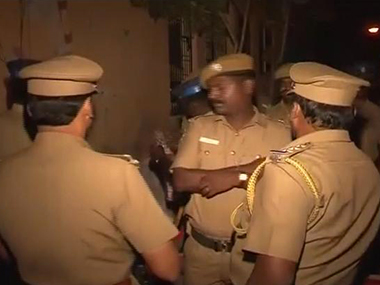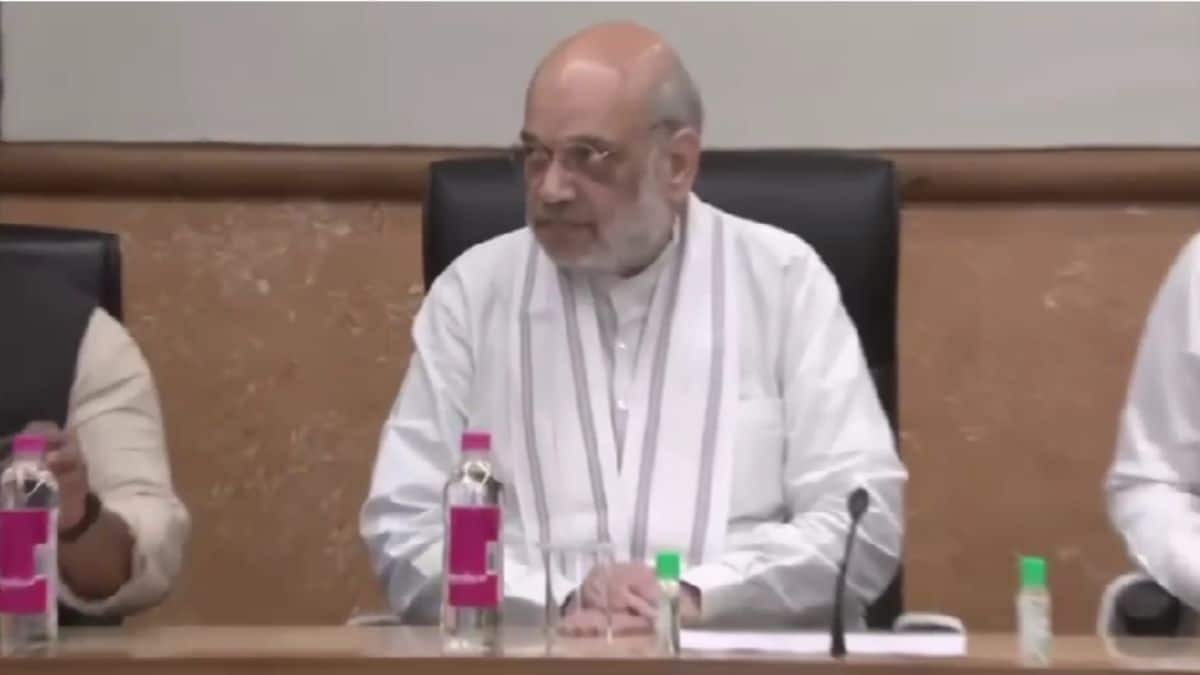It was a routine church-going day for Sreepriya (name changed), a 22-year-old second year-BA English student from Maduvankarai in Alandur, Chennai. She had left home around 5.30 pm and was walking towards the church when Rohit Kumar, who had been stalking her for several months, expressing his love, blocked her way. He demanded that she should express her love to him and stop bad-mouthing him to her friends. Sreepriya tried to move away from him, but he persisted. When she raised her voice, Rohit, pulled out a razor from his pocket and slashed it across her face. The girl cried out loud for help as blood gushed out from the deep cut the razor had inflicted on her face. Passers-by rushed to Sreepriya’s rescue. Rohit fled the scene before he could be stopped. Sreepriya was rushed to the hospital and doctors had to put several sutures on the gaping wound. Later, Chennai city police arrested Rohit, a 22-year-old college dropout, based on a complaint lodged by Sreepriya with the St Thomas Mount Police station. Police could pick him up easily because he lived on the same street where Sreepriya lived. [caption id=“attachment_4195655” align=“alignleft” width=“380”] Representational image. Image courtesy: News18[/caption] Sreepriya’s father, Anbalagan (name changed), works as a tricycle puller, and earns a bare minimum to keep his family — comprising his wife and three daughters — running. He knew about Rohit stalking his daughter but instead of lodging a police complaint, the family only warned the youth from harassing her. Even after the attack, Anbalagan was reluctant to file a police complaint. He allowed his daughter to do so later only after pleading before the police to keep the details of his daughter a secret. Fortunately for them Sreepriya survived the ghastly attack. But many parents like Santhanagopalakrishnan and Ranganayagi, father and mother of Swathi, an Infosys techie who was
hacked to death by a stalker at Nungambakkam Railway station in June last year, were not as fortunate as Anbalagan. Cases of stalking reaches the police only when stalkers assault the victim, in many cases resulting in death or grievous injuries. Until then parents choose to hush up the case, or try to handle it themselves, as they fear for their girls’ ‘reputation’. A stalker targets his victim’s father The story of Krishna Kumar, a resident of Kodambakkam, epitomises the extremes that cases of stalking could get. Krishna, could have been easily killed if not for the sympathy felt by the member of a hit squad, hired by his daughter’s stalker to eliminate him. One of the gang members of the hit squad leaked the ’elimination’ plan of the gang to Krishna and urged him to seek police help. It all started when a youth began to follow Krishna’s daughter, who was a medical student. The youth, a college dropout but from a financially sound business family, started stalking the girl, despite her telling him clearly not to harass her. However, the youth did not stop and continued harassing the girl. She then informed the matter to her parents, but instead of going to the police; they decided to solve the issue by themselves. “We were not ready to go to the police as I did not want to spoil the future of my daughter. We traced the address of the boy, who was living here with his grandparents and gave a strict warning to them. His grandparents did not know anything about the case and pleaded to us against taking the matter to the police,” says Krishna. When the girl’s family took up the matter with the grandparents, the youth became revengeful and decided to eliminate Krishna, thinking that could make things easier for him. “His idea was that when I get killed, he could financially support my family and thus can get the sympathies of my daughter. He then hired a quotation gang (a hired hit squad) to finish me off,” adds Krishna. The ‘quotation gang’ leader deputed one of their members to study the routines of Krishna to plot the attack. The gang member started to watch Krishna and found him to be an ordinary, harmless person. He then decided to warn Krishna about the impending danger and walked in to his office to meet him. “He told me about the whole plan and we lodged a complaint with a senior police official. Police then picked up the informant gang member and the rest of the ‘quotation gang’ members in the next three days. The grandparents pleaded not to register the case and assured me that they will send away the youth to another state,” Krishna said. Police also told Krishna not to register the case as it would bring a bad name to his daughter. So, the entire case was settled out of court. “I still shudder at the thought — what would have happened if he had decided to harm my daughter instead of me. I was fortunate that he did not do that,” says Krishna, heaving a sigh of relief. Few reports of stalking reported in Chennai The statistics of stalking and related crimes under the Chennai city police limits is intriguing. In the year of 2017, there were only 32 cases of stalking registered with the Chennai city police. “The 135 police stations in the city would be easily getting together 270 complaints a month. But the parents do not want to register them and want the police to only warn the stalker. Unless a complaint is registered no action can be taken against the accused,” Deputy Commissioner of police, Intelligence, S Vimala says. Sreepriya’s father Anbalagan regrets that he did not take up the matter with the local police even after knowing about his daughter being harassed. “We were scared of my girl’s name being flashed in the media. It could have hampered her marriage prospects as people would only blame my daughter for the incident. Fortunately, nothing serious happened to my daughter,” Anbalagan told Firstpost. The after effects of stalking and subsequent violence is that two families, who are in no way responsible for the crime, are devastated. The family of the accused suffer too along with that of the victims as often they lose their sole breadwinner. Rohit, the accused in Sreepriya case, was the only son of Ashok, who works as an office assistant at a Central Government office in Chennai. “I was sad to hear about the case as I didn’t know what was going on. Now, he is behind bars and I do not know whether he will be normal after returning. We will have to bear the pain of this till the end of our lives and any prospect of employment for him is also at stake,” Ashok told Firstpost. Police officials say when parents and most often the victims try to ignore cases of stalking, the stalkers get emboldened. The youngsters, officials say, have countless examples from Tamil movies where their heroes win over the heroines through persistent stalking. “Police should come out with pro-active measures to help the victims lodge the complaints. After the
Sarika Shah case in Chennai, there was a proposal to put complaint boxes near all colleges and in other public places where victims could drop in their complaints of harassment. But I do not see any such thing continuing,” says Suddha Ramalingam, a leading lawyer and social activist. Ramalingam says that women have their inhibitions to lodge a complaint against harassment and there is social as well as family pressure on the victims against approaching the police. “The decision to prefer a complaint is a long-drawn process. They think about the adverse effect the complaint could have on the victim’s future before approaching the police,” Ramalingam notes. The social taboo attached to such cases is so much that the Swathi’s family had to shift from their own house in Choolaimedu to an undisclosed location. “We are struggling to bring back the routine to our family. We have had enough of staring eyes and suspicious people. That is why I shifted my house and have become aloof,” says victim’s father Santhanagopalakrishnan. “How will we control such crimes, if parents or the victims do not come forward and complain to us?” asks Vimala. She says the police could only act if the victim or parents come forward to register cases of stalking or any sort of harassment.
In 2017, only 32 cases of stalking were registered in Chennai, however, the police believes the number could easily be around 270 complaints a month in all the 135 police stations combined
Advertisement
End of Article


)

)
)
)
)
)
)
)
)



